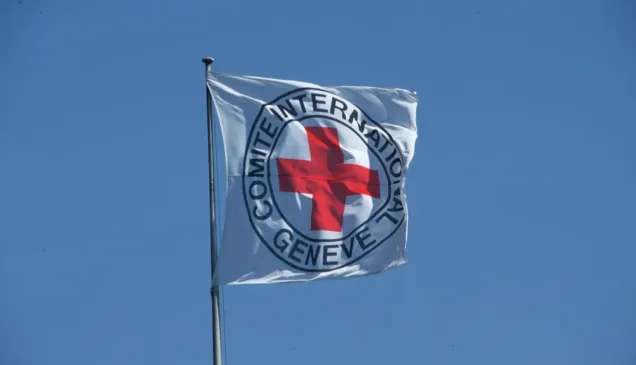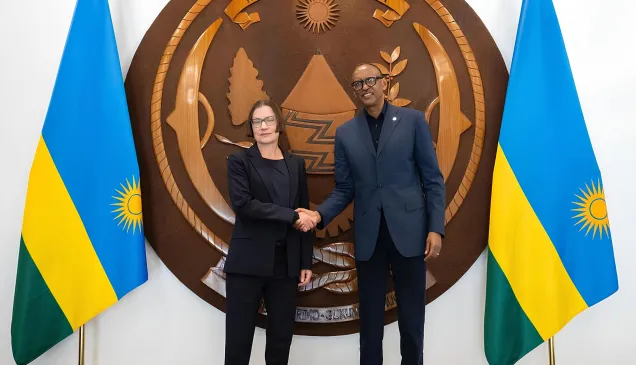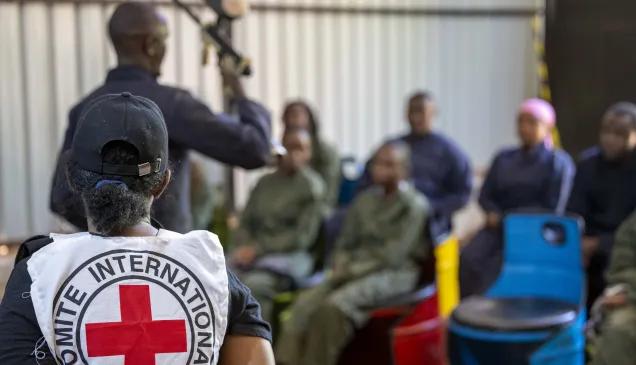Amputation is not the end of the road
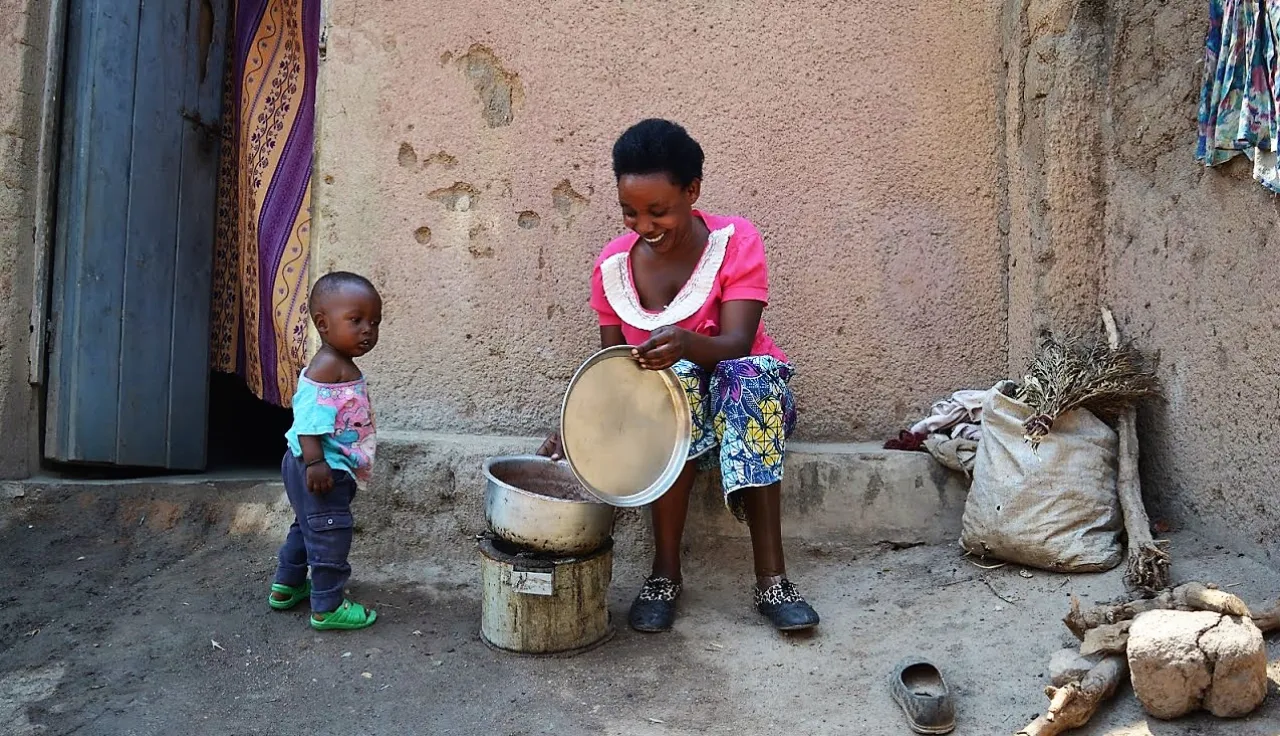
“These days, no one should feel helpless after losing a leg, or think that you cannot earn a living again. You can give birth if you are a woman, you can do any job that someone with all limbs can do, all it takes is confidence that you can make it.” says Nishimwe.
For 26-year old Nishimwe Nyiramahirwe, there is no limit to ability after amputation.
The mother of two, lives in Kinyinya sector, around 10 kms from the University Teaching Hospital of Kigali (CHUK), a distance that takes more than 2 hours on foot. The distance has always been a challenge for Nishimwe because public transport in the area is not easily accessible.
After a terrible car accident 20 years ago in the western province, Nishimwe's left leg was amputated below the knee. This is when she started using a prosthesis Since then she has been fitted with three prostheses. At the time of her accident, she was a tailor.
When the last prosthetic leg became worn out, I could not afford to repair it, or buy a new one, so I decided to sell the sewing machine
This led her to lose her livelihood and she would no longer provide for her family.
Thanks to community-based health insurance implemented at CHUK, she received a new prosthesis paying only 10% of the cost. Since 2018 the physical rehabilitation program of the International Committee of the Red Cross (ICRC) has been providing technical and financial support to CHUK, to enable the provision of prosthetic devices to people like Nishimwe. In 2020, the ICRC supported 1,722 people with physical rehabilitation services.
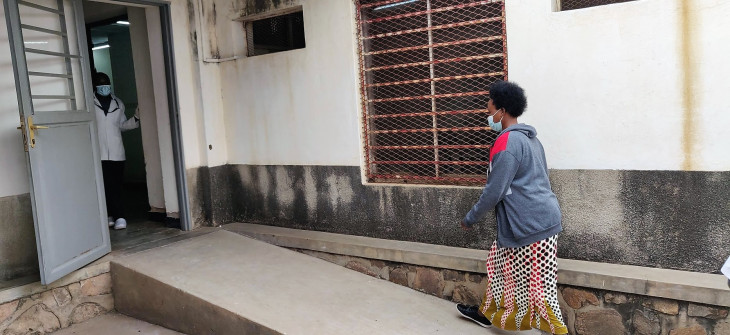
Nishimwe trying with her prosthesis at University Teaching Hospital of Kigali.
Nishimwe was trained to use her new prosthesis by a team of prosthetist orthotists and physiotherapists at CHUK. With the training and good fitting of the prosthesis, she now walks more than 2 hours, climbs steps, walks on uneven terrain, and does all her jobs with ease.
I am thankful for this prosthesis since I am now able to walk without difficulty, I can do most tasks that will help me provide for my sons, without using crutches
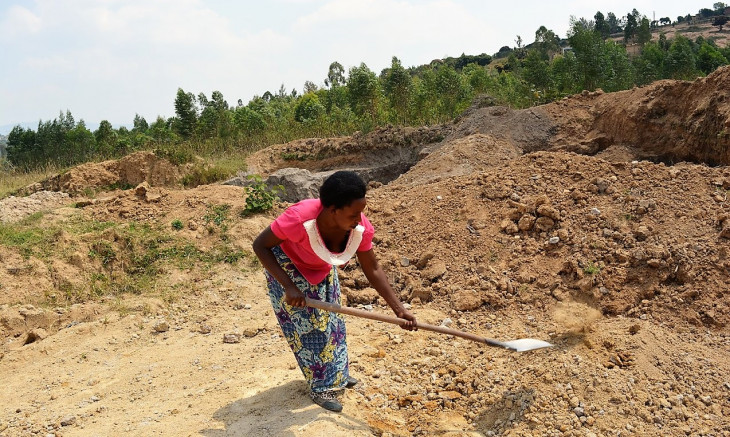
Nishimwe digging at a sand quarry.
Nishimwe currently digs and sells sand to construction workers. With this job, I earn at least 2 US dollars a day to buy food and pay for rent. Her dream job is to have her own shop in Kimironko sector where she says there are opportunities for a small business to thrive.
I would like to encourage anyone with amputation not to lose hope but rather to work harder. We can do anything once we have good fitting prostheses and proper training.

